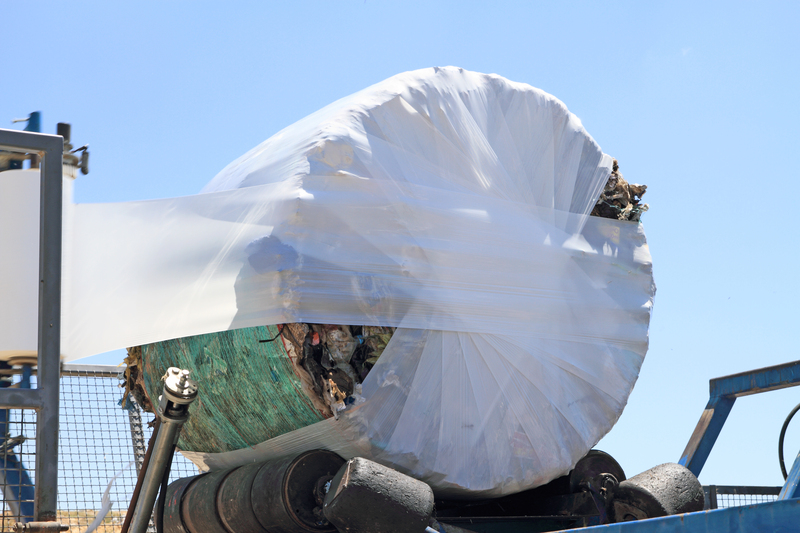In today's environmentally conscious world, restaurants are under increasing pressure to adopt sustainable practices. One of the most impactful areas where sustainability can be improved is in food waste recycling. By employing circular solutions, restaurants can not only reduce their environmental footprint but also potentially lower costs and boost their public image.
Understanding the Concept of Circular Economy in Food Waste Management
The concept of the circular economy revolves around minimizing waste and making the most out of resources. In the context of restaurant food waste recycling, it means creating a closed-loop system where waste is not just discarded but repurposed and reintegrated into the system.
- Reduce: Decreasing the amount of food waste produced.
- Reuse: Finding ways to repurpose food waste.
- Recycle: Transforming waste into valuable resources.

The Current State of Food Waste in the Restaurant Industry
The restaurant industry is a significant contributor to food waste. According to recent studies, nearly a third of all food produced globally goes to waste, a large proportion of which originates from restaurants. The sheer volume has pushed the need for effective food waste recycling solutions.
Restaurants face unique challenges when it comes to waste management, including:
- High volume and variability in food waste.
- Strict health and safety regulations.
- Space limitations for waste segregation and storage.
Benefits of Implementing Circular Solutions
Adopting circular solutions in food waste management can provide several benefits to restaurants:
- **Cost Savings:** Reduced waste means lower disposal costs and possibly even a new stream of revenue from recycled products.
- Environmental Impact: Decreases the carbon footprint by minimizing the amount of waste sent to landfills.
- Brand Image: Enhances reputation as an environmentally responsible business.
Implementing Circular Solutions: A Step-by-Step Approach
Transitioning to a circular model requires careful planning and execution. Here's a step-by-step guide to help restaurants implement effective food waste recycling solutions:
Step 1: Conduct a Waste Audit
Before implementing any solution, it's crucial to understand the current waste scenario:
- Identify where and what kinds of waste are being generated.
- Track patterns to determine peak waste periods.
Step 2: Implement Waste Reduction Strategies
Begin by minimizing waste at the source. This could involve:
- Menu Optimization: Crafting a menu that uses ingredients efficiently and reduces surplus.
- Portion Control: Implementing portion sizes that satisfy customers while reducing leftovers.
Step 3: Establish a Recycling and Composting System
Once waste is reduced, focus shifts to recycling and composting:
- Segregate Waste: Separate organic from inorganic waste to streamline composting.
- Partner with Local Farms: Create partnerships to provide organic waste for animal feed or compost.
Step 4: Invest in Technology
Leveraging technology can significantly enhance waste management:
- Utilize smart bins that track the types and amounts of waste being disposed of in real time.
- Implement software that forecasts inventory needs accurately to reduce over-ordering.
Overcoming Challenges and Ensuring Compliance
Implementing a circular approach is not without challenges. Restaurants must navigate regulatory landscapes and ensure compliance with health standards. Solutions include:
- Regular staff training to ensure proper waste segregation and compliance with regulations.
- Working with certified waste management companies to ensure legal compliance.

Success Stories: Restaurants Leading the Way
Many restaurants have successfully adopted circular solutions and serve as excellent case studies. For instance, several restaurants have partnered with local bio-digesters that convert organic waste into biogas, effectively closing the resource loop.
The Future of Food Waste Recycling in Restaurants
As technology evolves and consumer awareness grows, the future of restaurant food waste recycling looks promising. Emerging trends include:
- The adoption of AI-driven solutions to predict waste patterns and optimize procurement.
- Greater collaboration within the food industry to create shared waste-reduction frameworks.
By embracing circular solutions, restaurants not only contribute positively to the environment but also position themselves as pioneers of change in the industry.
In conclusion, the transition to a circular economy in restaurant food waste management presents a unique opportunity for establishments to rethink operations and make impactful environmental contributions. With strategic implementation and continuous improvement, restaurants can significantly reduce waste, lower costs, and enhance their brand reputation for sustainability.